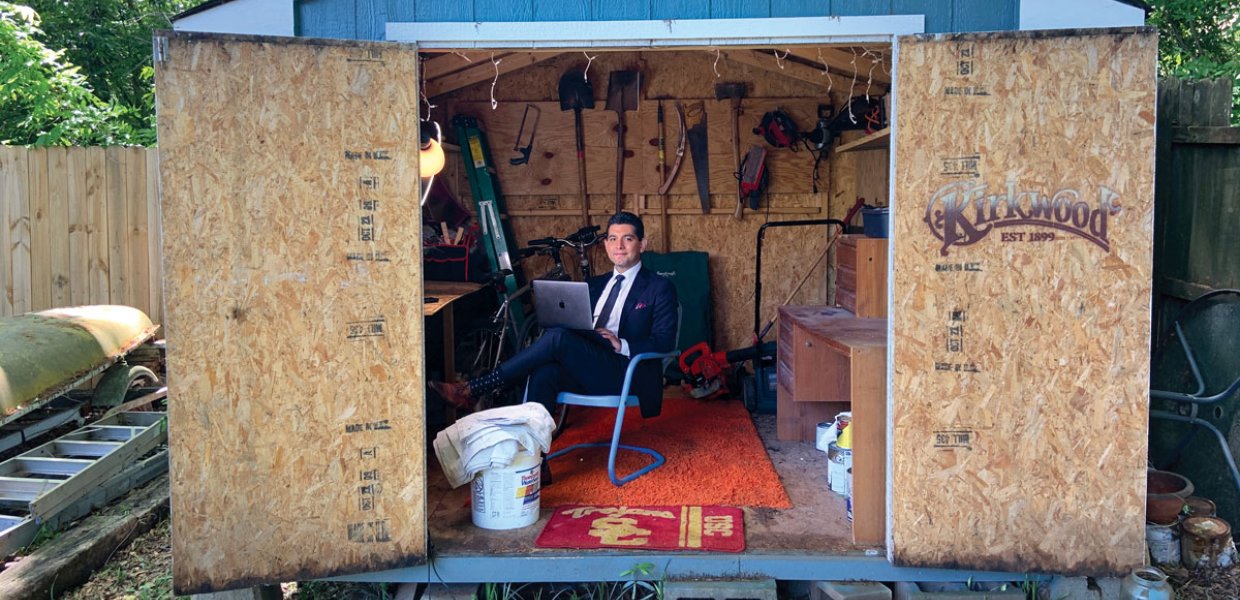Throughout his 14-year career at CNN, correspondent Nick Valencia has seen more than his share of bad days. The devastation of Hurricane Maria in Puerto Rico, the anguish of the Mother Emmanuel church shooting in Charleston, the unrest in Atlanta after the killing of George Floyd by police officers — the last of which left him with flesh wounds from a BB gun to his back.
“The hardest part of my job is looking into people’s eyes on their worst days,” said Valencia (BA, broadcast journalism, ’05). Now based in Atlanta, he is in the thick of his network’s reporting on the COVID-19 crisis, as millions of people across the United States and the world face one bad day after another.
“Coronavirus has been part of my daily life, in pretty much every conversation, since February,” Valencia said. “Journalists have always had an important job, but right now that’s truer than ever. We’re really bringing to our viewers and our readers information they need about how this is going to affect their life. Not just in this moment, but in the long term.”
That level of empathy and commitment to public service through journalism has driven Valencia throughout his career, which started in the Eagle Rock neighborhood of northeast Los Angeles.
“I already had the journalism bug in high school,” he said. Valencia remembers his father, Ricardo Valencia Jr., coming with him to cover a varsity basketball game when he was about 16 years old. At one point when they were sitting in the stands, “He said to me, ‘I just love watching you do what you’re meant to do,’” Valencia said.
Less than a year later, while Valencia was still in high school, his father died — and was buried with his son’s first press pass. Valencia sees his journalism career as a way to honor his dad’s legacy. “He knew what I was meant to do even before I did,” Valencia said. “I’m a third-generation Mexican American, first-generation college graduate, working at CNN as one of their correspondents, and that’s something that makes, not just my family, but my community really proud.”
Valencia believes his USC Annenberg education gave him the tools he needs to tell those kinds of stories from the front lines. As an entry-level teleprompter operator at CNN in 2006, “I first got noticed when I bought a ticket to Uganda,” Valencia said. “They let me bring my badge, but I was technically on vacation time. I crisscrossed the country and brought back my report on the return of Indian immigrants who had been expelled from the country. I would have never been able to do that if I wasn’t trained on how to set up a camera, how to do interviews — the skills that I learned at USC.”
From that early break, Valencia worked his way up at CNN, specializing in reporting from crisis zones. He has put those high-pressure journalistic skills to work on some of CNN’s most crucial coverage of COVID-19, including tracking the spread of coronavirus in his home state of Georgia and covering the conflicts between Centers for Disease Control and Prevention (CDC) and the White House.
As he continues to advance his audience’s understanding of the pandemic, Valencia acknowledges that he’s had his own share of bad days. In January, he was diagnosed with anxiety disorder, depression and post-traumatic stress — a fact he felt compelled to share with the public.
“You shouldn’t be ashamed to confront this,” he told his colleague Robin Meade on the April 22 episode of her CNN Headline News show. “I got into journalism to help people, and that’s why I’m doing this, as uncomfortable as it is … it’s so important to tell people that we’re going through it with them.”
Valencia says he would like to believe his father would approve of both his work at CNN, and his forthrightness about his own mental health challenges. “My dad always told me greatness is measured by how much it takes to discourage you,” Valencia said. “If you want to be great, you can only get to it through adversity.”
